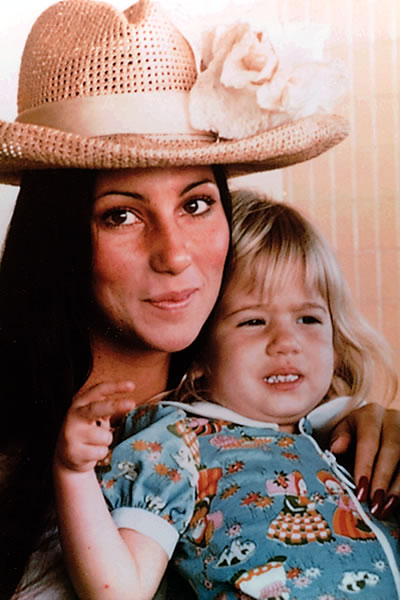Miscellaneous
Chaz’s changes
Bono on media blitz, plans, activism and more
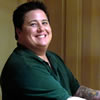
Forget about gender identity, how he felt looking in the mirror all those years, navigating the thorny overlap of sexual orientation, the surgery and all that for a minute — for Chaz Bono, the sheer physiological aspects of being a woman wreaked decades of pain on him.
In the new memoir “Transition: The Story of How I Became a Man” (see review on page 48), Bono writes of “periods that were painful to the point of being debilitating” and regularly not being able to get out of bed. Menstrual pain, of course, is no picnic for anyone, but for Bono, there was precancerous cell growth on the cervix, endometrial cysts on the ovaries and, in his late 20s, a cyst in the uterus.
Upon having it removed when he was 36, a further issue — he can’t recall the medical term for it offhand — was discovered that doctors hadn’t been aware of before involving cell lining growing into muscle.
And though the hormone therapy Bono started taking in March 2009 at age 40 brought with it some adverse side effects (acne, for one), Bono writes of soon feeling “really good” physically with “more energy, more focus … as if I had been depressed and suddenly an antidepressant kicked in — everything in my life seemed easier … like my body had finally gotten something that it really needed to function.”
Bono, during a 45-minute phone chat this week, says he doesn’t think this is a coincidence.
“I’ve talked to lots of trans guys who have these kind of issues like with me, there was just issue after issue after issue with my female organs,” he says. “So it’s not just emotionally troubling, but physically painful my whole life … it was cyst after growth after this after that. I can’t help but think a little bit of that was my body trying to tell me something.”
Everybody, by now, knows the basics of Bono’s story, but even the searingly candid “Transition” leaves a few topics unexplored. Bono is up for any question and answers all in a low key non-melodramatic manner.
The media blitz, which has included appearances on Oprah and Letterman, has been “really good.”
“Oprah’s so weird, because it’s Oprah,” he says. “There’s this huge lead up to it and then before you know it, it’s over. Letterman, too, was really great. I felt he really represented a lot of the lack of knowledge about trans issues so it was a good opportunity to break it down in the most basic ways.”
Some gay groups criticized Letterman’s squeamish expressions as Bono explained “bottom surgery.” He says it didn’t faze him.
“I think seeing David Letterman for so many years, you realize he can always be kind of snarky with his guests. I didn’t feel he was being disrespectful to me.”
Bono’s friend Diego Sanchez, who’s also FTM transgender and a senior legislative adviser to gay U.S. Rep. Barney Frank, says Bono’s visibility and irrefutable pop culture cred, put him in a unique position to speak out.
“(He’s) been in America’s and the world’s eyes since he was 2, so the value and courage this open disclosure adds is immense,” Sanchez wrote in an e-mail.
Bono says his father’s side of the family easier time with the transition is likely due to a generation gap, though now his mom (Cher) and grandmother (85-year-old Georgia Holt) have, in many ways, come around.
“Transition” relays Cher’s initial nonchalance followed by months of withdrawal and inaccessibility.
“I think fear set in,” Bono says. “It was a sense of loss for her. There was a part of me that was gone forever.”
Though Holt was “cool from the get go,” Bono admits “I don’t think she still completely understands it. But she’s always been 100 percent supportive and said if this is what makes you happy. That never wavered. We’ve been close my whole life and that hasn’t changed an iota.”
Bono agrees it seems more butch lesbians seem to transition than gay men. Though he says his lesbian-identified years were never an accurate identification, he’s personally known way more FTMs in lesbian circles whereas many MTFs often have been married to women and not part of the gay community at all.
“For me, it was very much, ‘Oh, I’m attracted to women, I must be a lesbian.’ I don’t personally know any (trans men) who didn’t go through the lesbian community … I think maybe with (trans women) they tried to be extremely macho as guys and really tried to be guys, so they overcompensated and got married and had kids and all that. That may be part of it. I think the stigma for transwomen is a lot harder because we’re a very patriarchal society and masculinity is the most coveted thing, so I think they get a lot more flak. I don’t really know why, but it may have been important for them to fit into proper, and I put that in quotes, male behavior before they finally allowed themselves to be themselves.”
Bono, who got fired from the Gay & Lesbian Alliance Against Defamation (GLAAD) in the ‘90s, says that’s all ancient history now and they’ve been supportive this time out. The staff has changed since he worked there and he says most of his problems stemmed from one person who’s no longer in the picture.
He imagines staying active in LGBT activism but has no concrete plans. He’d like to see trans and bi issues more prominent in LGBT activism.
“I feel like the T and the B, which is my household, don’t get nearly as much focus as the L and the G and I hope that starts to change. I certainly think we need the support of gays and lesbians, even though they’re somewhat different issues, but we’re generally discriminated against for the same reasons, for not being perceived as fitting into gender roles.”
For Bono, sexual orientation and gender identity are apples and oranges, though he imagines less rigidity in understanding in coming years.
“Since transgender encompasses any sort of non-typical gender expression, there are a lot of different people who could loosely or strongly fit under that umbrella … I think, especially with the younger generation, we’re gonna see more pan-sexuality, more pan-gender identity and less rigid labels.”
A conversation with RuPaul, Bono says, was helpful.
“I was like, ‘Dude, what’s up with the drag thing?,’ because I had kind of the same question. He said for him it was an act or rebellion initially. It was his way of being a rebel, of giving the finger to the establishment.”
He says he and his girlfriend of nearly six years, Jennifer Elia, may eventually tie the knot now that they legally could, but he says they’d “feel a little guilty since so many of our friends can’t.”
Bono, who’s grand marshalling San Francisco Pride this year, says he’s fully supportive of a trans-inclusive ENDA but suspects it’s on the back burner since “Don’t Ask, Don’t Tell” and marriage rights for same-sex couples seem to stuff activism coffers more readily than trans-connected issues.
Though Bono balks, in his book, at undue interest in his parents, he indulges a few questions about his parents’ relationship with each other. From their awkward Letterman reunion to the palpable grief Cher exhibited at Sonny’s funeral, it’s obvious they had a complicated relationship.
Bono remembers clearly the phone call in which he told his mom that Sonny was dead.
“She was OK at first, but then she very quickly started to unravel,” he says. “Like I’d never heard her. I was like, ‘OK, I’m gonna go and get (Aunt) Gee to call you now.’ I don’t have any memory of them together but I think (when he died) I started to realize the depth of love that was there.”
Growing up, Bono says they were mostly amicable with each other.
“There were many times when they were friendly, for sure. After the divorce there were times where it felt a little prickly. Well, not prickly, but something. But until my dad passed away, anytime I went to see one of them, they always asked about the other.”
He says it wasn’t especially hard to be so open in the new book and the documentary “Becoming Chaz” which found the crew behind “Eyes of Tammy Faye” following him during the process. The book, he says, was much harder to do.
“The documentary was kind of fun but the book, yeah, you’re sitting there at the computer wanting to pull your hair out. The book was really hard, especially writing about the years when I was in denial. I always knew it had been hard but looking back for the book, I don’t think I realized at the time, how hard it really was. The first part was a real grind to write and it took a really long time to get through.”
Even though life is obviously extremely different now, Bono is proud of his earlier work, the book “Family Outing” (“it did what I wanted it to do”) and even the 1993 flop album he did with his band Ceremony (“in a sense I’m glad it didn’t take off, but I still think it’s pretty good music — it’s not anything that I’m ashamed of”).
Bono closes the book by acknowledging “a loving God, a higher power who delights in diversity and has only our best interests at heart.”
In his estimation, then, why does God put people in the wrong bodies?
“Transgender people have lived both ways and there are so few on the earth who’ve experienced socializing in both bodies and feeling two different hormonal endocrine systems. I think we have a lot to share, so to me it kind of makes sense. In certain cultures, transgender people have been highly revered.”
But what about all the years of agony? Is there a payoff on the back end?
“Yes, definitely,” Bono says. “It’s horrible and very rough going through it, but you definitely gain a depth and an insight that people who sail through life probably don’t have. I have all that now. I really appreciate things. Life wasn’t so easy for so many years, so I try to always be grateful for the things I have and always have a positive attitude. It’s easier after years of feeling just the opposite.”
Miscellaneous
What it means to be an active ally to your LGBTQ+ co-workers TEST
Five easy tips to help you avoid common risks
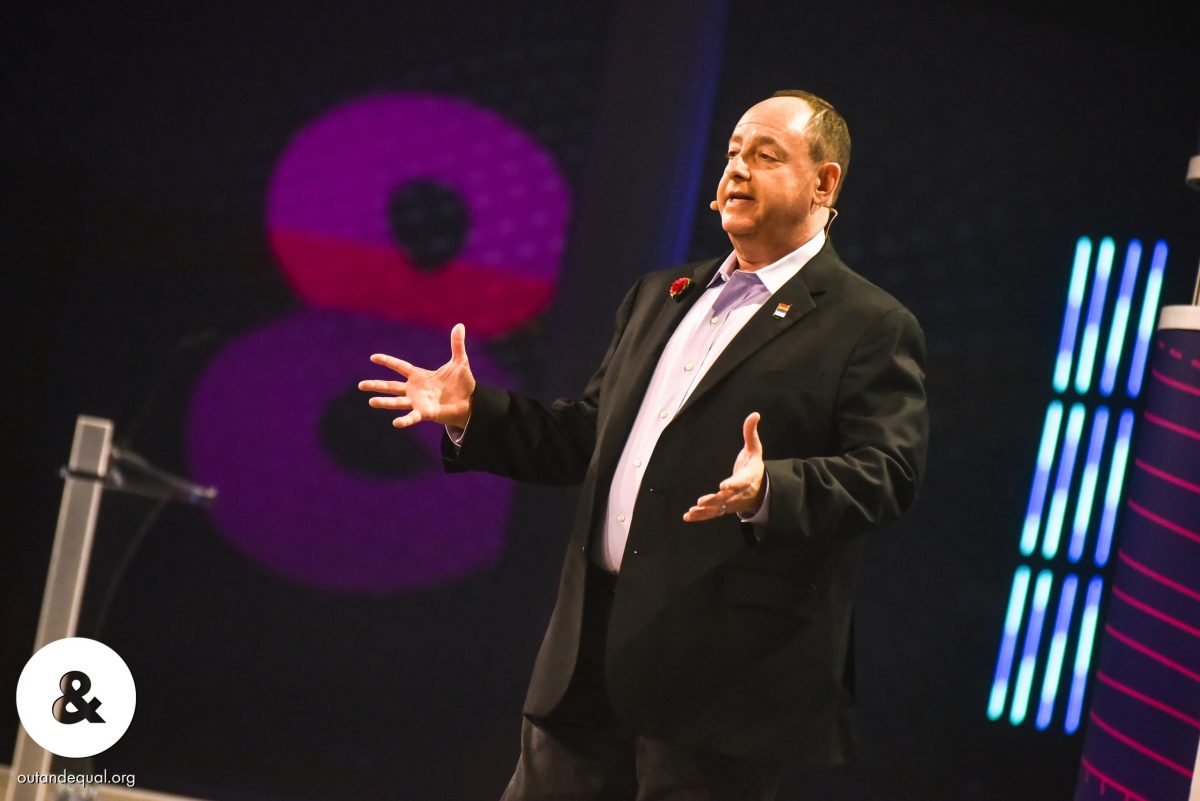
Your home is more than just a place to eat and sleep; it’s your safe haven. As much as you might cherish your home, you should probably also recognize the potential hazards within its familiar walls. Accidents can happen in an instant, yet with a little foresight and some simple adjustments, you can transform your house into a safer haven.
Accidents can happen anywhere, and with a few simple tweaks, you can lower risks in your space. Below you’ll find five tips for each room in your home to help prevent injuries, falls, and other mishaps. In short, home safety.
This article was inspired by a shower in a rental we managed that began leaking through the kitchen ceiling below. If only the landlord had installed grab bars, right!? Below, we’ll guide you through the steps to fortify your bathroom, making it a place of relaxation without the fear of slips and falls. Then, we’ll venture into the room where the magic happens, where proper planning can ensure great nights and peaceful mornings. We’ll show you how to prevent accidents while you experiment becoming the next Gordon Ramsey. And we’ll include a few surprising solutions for those other rooms that hold their own unique hazards, offering solutions to safeguard against unexpected mishaps.
Bathroom Safety
Install Grab Bars: Adding grab bars near the shower and toilet can provide essential support for family members of all ages. Not only can they help with getting in and out, but they can help provide stability when washing. Make sure they are securely anchored to the wall.
Non-Slip Mats: Place non-slip mats inside the shower and bathtub to prevent slips. They’re a small investment that can save you from falls and head injuries.
Adjust Water Temperature: Ensure your hot water is set to a safe temperature to avoid scalding. The hot water heater should be set to around 120°F (49°C)l, the middle setting on many water heater settings.
Medicine Cabinet Locks: If you have young children, use childproof locks on your medicine cabinet to keep harmful substances out of reach.
Proper Lighting: Ensure there’s adequate lighting in the bathroom to avoid trips and falls during nighttime visits. Nightlights can be a simple and effective solution.
Bedroom Safety
Clear Pathways: Keep pathways in the bedroom clutter free to prevent tripping. Ensure there’s enough space to move around comfortably, particularly getting around the bed. Be aware where all furniture is when walking around to avoid stubbed toes, particularly at night.
Secure Rugs: If you have throw rugs, use rug grippers or double-sided tape to keep them from slipping. Loose rugs are a common trip hazard.
Bed Rails: For anyone at risk of falling out of bed, consider installing bed rails to provide extra support and prevent falls.
Nightstands with Drawers: Opt for nightstands with drawers to keep essential items. This reduces the need to get out of bed at night, minimizing the risk of falls, as you race to grab what you need and not lose a moment’s rest.
Fire Safety: Install battery-operated smoke detectors in the bedrooms if there are none. Make sure to install them 36 inches away from an air vent or the edge of a ceiling fan. Also six inches away from the joint between the wall and ceiling. And test smoke detectors regularly.
Kitchen Safety
Non-Slip Flooring: Choose slip-resistant rugs in the kitchen, especially in areas where spills are common. Mats near the sink and stove can also help and you can often buy them fairly cheaply at Costco.
Childproof Cabinets: If you have little ones, use childproof latches on cabinets and drawers to prevent them from accessing potentially hazardous items.
Anti-tip brackets: Install an anti-tip bracket behind the range. These are often used when children are in the home. Although they are less likely to open the oven door and use it as a step stool to get to the stove-top, adults can also benefit from installing these.
Adequate Lighting: Proper lighting is crucial in the kitchen to avoid accidents. Under-cabinet lighting can illuminate work areas effectively.
Secure Heavy Items: Ensure heavy pots and pans are stored at waist level to prevent straining or dropping them from high shelves.
Sharp Object Storage: Keep knives and other sharp objects in a secure drawer or block. And handle all sharp items with extreme care, even when washing and drying. These steps reduce the risk of accidental cuts.
Other Safety Tips
Furniture Anchors: Secure heavy furniture, like bookshelves and dressers, to the wall to prevent tip-overs, especially if you have young children.
Adequate Outlets: Check for damaged outlets and replace them promptly. Avoid overloading circuits with too many devices. Install placeholder plugs in outlets to prevent young curious fingers (or tongues?) from going inside an electrical outlet.
Stair Gates: If your home has stairs, install safety gates at the top and bottom to prevent falls, especially if you have toddlers or pets to keep them off of the stairs when you cannot monitor them.
Emergency Escape Plan: Develop and practice an emergency escape plan with your family, including a designated meeting place outside.
Carbon Monoxide Detector: If your home burns any fossil fuels for heating or appliances, install carbon monoxide detectors in common areas of your home to detect this odorless gas. The D.C. building codes require this if you use a fireplace or if you have an attached garage. In essence, if there is any potential source of carbon monoxide in the home, be sure to install these detectors.
Remember, a safer home not only prevents accidents but also provides peace of mind for you and your family. Implement these simple tips to create a secure environment in every room of your house.
With these practical tips and a few adjustments, you can significantly reduce the risk of injuries and falls in your home. Enjoy peace of mind in your now much safer haven.
Scott Bloom is owner and senior property manager of Columbia Property Management.
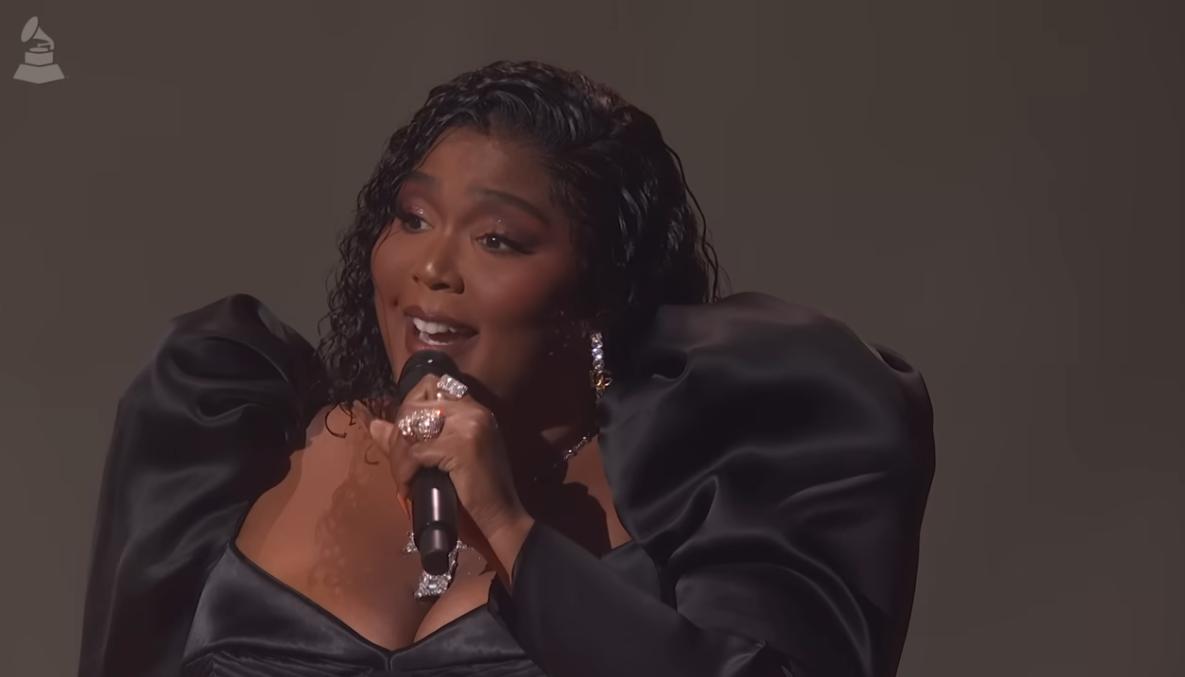
When Lizzo sings “If I’m shinin,’ everybody gonna shine,” in her hit song, “Juice,” she means it. Proof of that came this week on Instagram when the LGBTQ ally announced the first winner of her annual Juneteenth Giveback Campaign is the Marsha P. Johnson Institute, a national nonprofit based in Richmond, Calif., dedicated to the protection and defense of Black transgender people.
And she did so in song: “On the first day of Juneteenth, Lizzo gave to me,” she sang in her video, posted Tuesday, as she revealed her $50,000 gift to MPJI.
“That’s right, we know who Marsha P. Johnson is. We know what Marsha P. Johnson has done for the LGBTQ, emphasis on that ‘T,’ Q community,” said Lizzo to her 13.5 million followers. “Thank you so much to the people at the Marsha P. Johnson Institute. You deserve this, and I hope this helps you so much as you help protect our Black trans family.”
“What the Marsha P. Johnson Institute does is protects and defends the rights of Black transgender people. They do this by organizing community, advocating for the people, and creating an intentional healing community, developing transformative leadership and promoting collective power,” she said.
“We are overjoyed for the shoutout from Lizzo today, the generosity of her sharing her platform and the recognition of MPJI and its work,” said Elle Moxley, MPJI’s executive director. “The resources from this campaign will ensure the protection and defense of Black transgender people continue at a time where it is so vitally needed. We are so grateful for the support of Lizzo and her fans.”
As one of Time Magazine’s Persons of the Year for 2019 and a 2023 Grammy winner, Lizzo is more than a pop star but an inspiration to millions of fans for her body-positive attitude, her self-confidence on stage and in her videos, her empowering music and her activism. She’s also the founder of her own clothing line, Yitty. In 2021, she made headlines when she publicly corrected a paparazzo for using “she/her” pronouns and misgendering Demi Levato.
As part of her campaign, now in its 4th year, Lizzo recognizes Black-led grassroots organizations and businesses and encourages her fans to join her in supporting each of the five organizations she highlights this week. Fans who take action by donating are entered into a drawing for an all-expenses paid trip to see her perform at Fuji Rock in Japan later this year.
This week’s other nonprofits receiving gifts are: Black Girls Smile, Sphinx Music, the University of Houston and Save Our Sisters United.
Find out more about Lizzo’s 4th annual Juneteenth Giveback Campaign by clicking here.
Celebrity News
Anne Heche dies after removal from life support
Actress dated Ellen DeGeneres in late 1990s
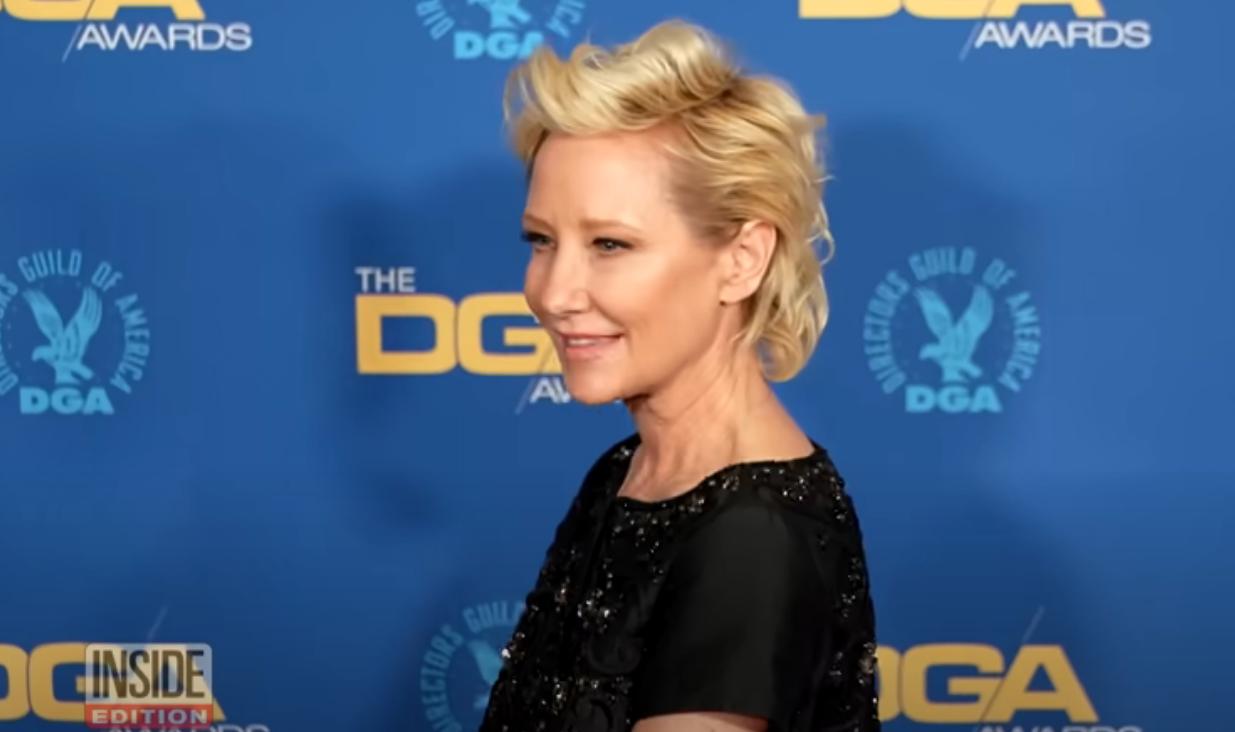
Actress Anne Heche died after she was removed from life support on Sunday, nearly two weeks after her Mini-Cooper crashed through a two-story house in Los Angeles’ Mar Vista neighborhood. Investigators with the Los Angeles Police Department believe she was intoxicated at the time.
She sustained a severe anoxic brain injury along with severe burns and was being treated at the Grossman Burn Center at West Hills Hospital, near Chatsworth in the San Fernando Valley.
The 53-year-old actress who was a star of films like “Donnie Brasco,” the political satire “Wag the Dog” and the 1998 remake of “Psycho,” had been declared legally dead under California law on Friday, however, her family kept her alive long enough to be an organ donor.
In a statement Friday, the LAPD announced that: “As of today, there will be no further investigative efforts made in this case. Any information or records that have been requested prior to this turn of events will still be collected as they arrive as a matter of formalities and included in the overall case. When a person suspected of a crime expires, we do not present for filing consideration.” LAPD detectives had previously made public that investigators into the crash found narcotics in a blood sample taken from Heche.
The actress’s family released a statement on Friday:
“Today we lost a bright light, a kind and most joyful soul, a loving mother, and a loyal friend. Anne will be deeply missed but she lives on through her beautiful sons, her iconic body of work, and her passionate advocacy. Her bravery for always standing in her truth, spreading her message of love and acceptance, will continue to have a lasting impact,” the statement added.
Heche was married to camera operator Coleman Laffoon from 2001 to 2009. The two had a son, Homer, together. She had another son, named Atlas, during a relationship with actor James Tupper, her co-star on the TV series “Men In Trees.”
Laffoon left a moving tribute on an Instagram reel in which he also gave an update on how their 20-year-old son Homer Laffoon is coping with the loss of his mother.
“I loved her and I miss her, and I’m always going to,” he said adding: “Homer is okay. He’s grieving, of course, and it’s rough. It’s really rough, as probably anybody can imagine. But he’s surrounded by family and he’s strong, and he’s gonna be okay.”
“Rest In Peace, Mom, I love you, Homer,” the actor’s 20-year-old son, Homer, said in a statement after Heche was declared legally dead on Friday.“ My brother Atlas and I lost our Mom,” read the statement. “After six days of almost unbelievable emotional swings, I am left with a deep, wordless sadness. Hopefully, my mom is free from pain and beginning to explore what I like to imagine as her eternal freedom. Over those six days, thousands of friends, family, and fans made their hearts known to me. I am grateful for their love, as I am for the support of my Dad, Coley, and my stepmom Alexi who continue to be my rock during this time. Rest In Peace Mom, I love you, Homer.”
Tupper, a Canadian actor who starred alongside Heche in “Men in Trees,” had a 13-year-old son, Atlas, with her. “Love you forever,” Tupper, 57, wrote on his Instagram post’s caption with a broken heart emoji, which shared an image of the actress from Men in Trees.
Between 1997 and 2000, Heche was also in a relationship with talk show host Ellen DeGeneres.
“This is a sad day,” DeGeneres posted on Twitter. “I’m sending Anne’s children, family and friends all of my love.” The year after her break-up with the comedian, in September 2001, Heche recounted in her memoir “Call Me Crazy,” about her lifelong struggles with mental health and a childhood of abuse.
KTLA’s entertainment reporter Sam Rubin noted that over the past two decades, Heche’s career pivoted several times. In 2017, she hosted a weekly radio show on SiriusXM with Jason Ellis called “Love and Heche.”
In 2020, Heche made her way into the podcast world. She launched “Better Together” which she cohosted alongside Heather Duffy Boylston. The show was described as a way to celebrate friendship.
She also worked in smaller films, on Broadway, and on TV shows. She recently had recurring roles on the network series “Chicago P.D.,” and “All Rise” and was a contestant on “Dancing with the Stars.”
People magazine reported that several of Heche’s acting projects are expected to be released posthumously.
These include “Girl in Room 13,” expected to be released on Lifetime in September, “What Remains,” scheduled to be released in 2023, and HBO Max TV series “The Idol,” created by Abel Tesfaye (The Weeknd) and Euphoria creator Sam Levinson.
In her Instagram post from earlier this year Heche stands between her sons Atlas, 13 and Homer, 20.
From KTLA:
-

 Africa5 days ago
Africa5 days agoCongolese lawmaker introduces anti-homosexuality bill
-

 District of Columbia1 day ago
District of Columbia1 day agoReenactment of first gay rights picket at White House draws interest of tourists
-

 World5 days ago
World5 days agoOut in the World: LGBTQ news from Europe and Asia
-

 District of Columbia1 day ago
District of Columbia1 day agoNew D.C. LGBTQ+ bar Crush set to open April 19

